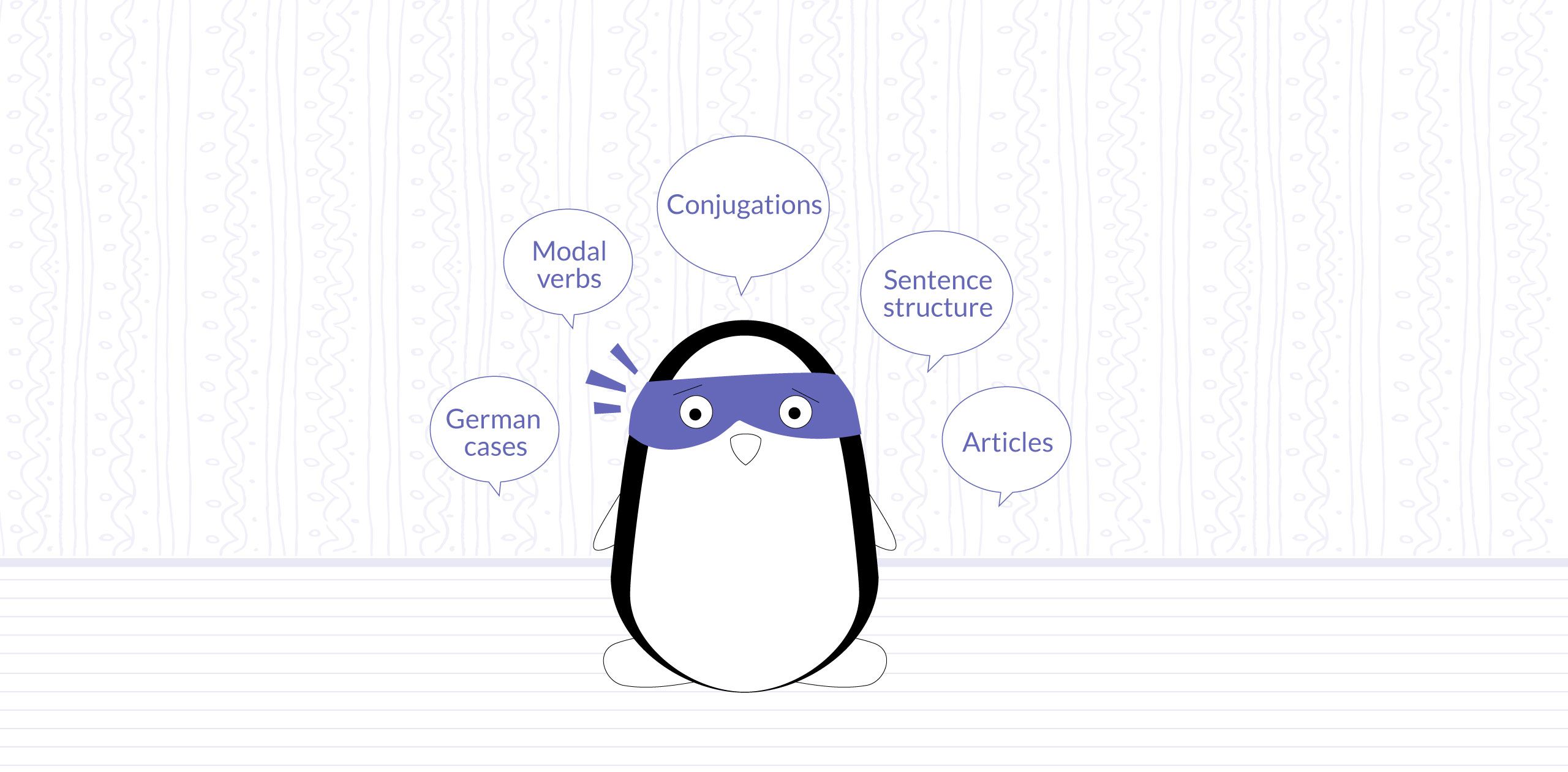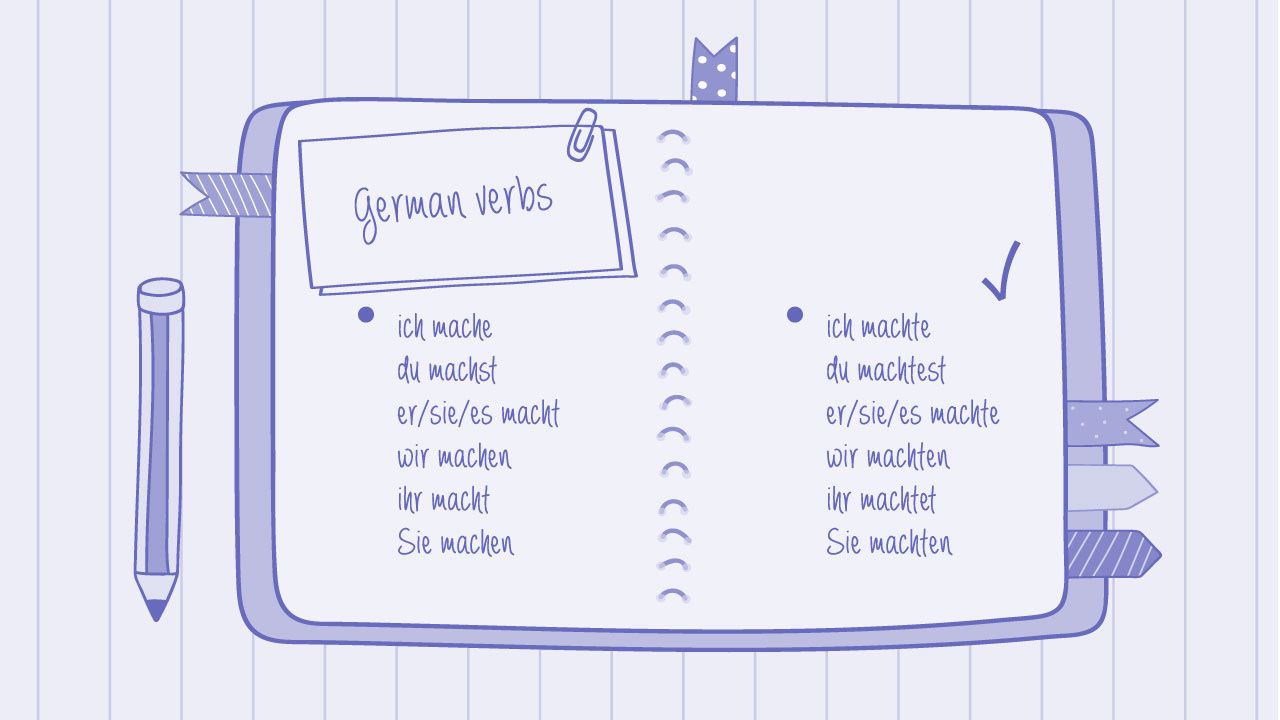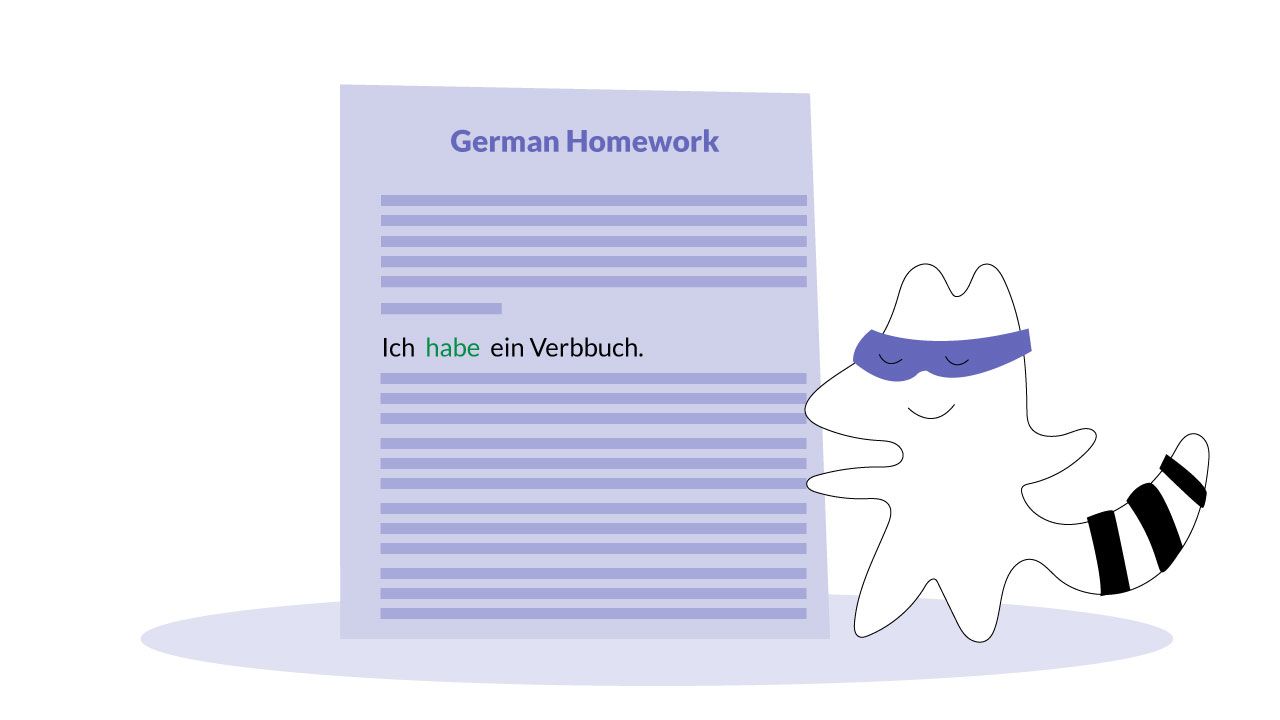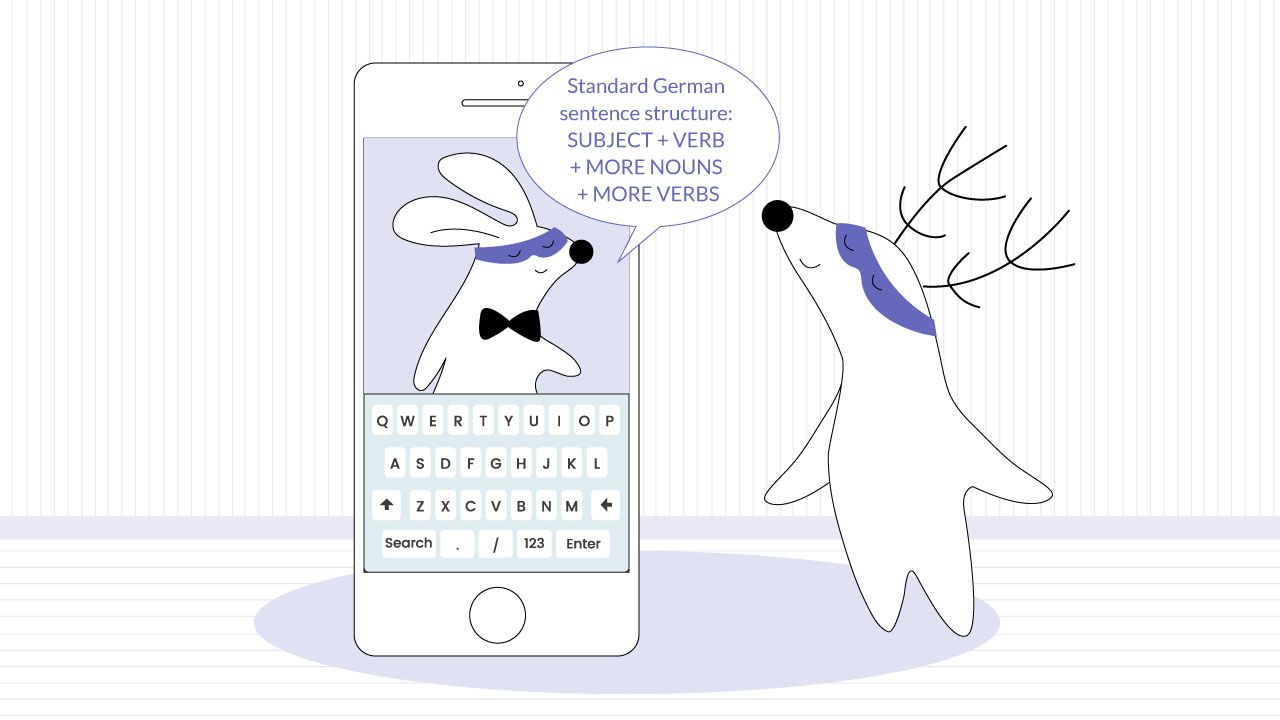
German grammar is often considered to be one of the most difficult aspects of learning this language.
There are many rules, which can seem confusing and overwhelming at first, as well as different grammatical constructions that can give you quite a headache. And, there are also some common pitfalls that students often stumble upon, which makes the process only harder.
Fortunately, there are some very helpful learning methods and study techniques that can help you boost your learning journey. The most important thing is to find a method that works best for you. While there is no perfect way of learning German grammar that will suit everyone, there is definitely something out there that will fit your personal learning needs.
In the article below, we want to share with you some of the most helpful tips for learning German grammar. Give them a try, and avoid the tears and teeth-gnashing that come with this part of learning the German language.
Learn German with Langster
Divide the Information into Small Grammar Points
One of the best things you can do to make the process of learning German grammar easier is to break the information down into smaller, more manageable pieces.
By focusing on one or two grammar points at a time, you will be able to understand and learn them better. This will make the learning process much less overwhelming. And, as an added bonus, you will also be able to apply what you have learned more effectively.
For example, you can focus on one particular topic each week (e.g. the dative case), or break down the grammar rules by difficulty level and focus only on the parts you need to know now. You can also group grammar rules together according to their function (e.g. verb forms, nouns, adjectives etc.).
And you can always see our German grammar points here to get some inspiration.
If you are struggling with a certain rule or set of rules, take some time to research it further. There are plenty of online resources that can help you get a better understanding of the German grammar system if textbooks don't help.
Create a Verb Book (And Group Them)

While there are many elements that need to be mastered in order to learn German grammar, the one thing that tends to give students a lot of trouble is verb conjugation.
One of the best things you can do for yourself is to take a notebook (or even a Google doc) and write down all of the verbs you've learned with their conjugations.
The easiest and most effective way is to group the verbs together by type: regular vs. irregular verbs. Further on, you can also divide the irregular verbs into smaller groups based on their stem changes (e to ie, a to ä, and e to i).
This will help you structure the verb endings (and stem changes) better and apply the categories instead of memorizing an entire conjugation table for all the verbs you learn.
Apart from that, a verb book will help you speed up the process of doing grammar exercises. Instead of struggling every time you need to conjugate a verb you don't know well, you can simply look it up in your handy book. For best results, you can also add examples of how these verbs are used.
Use Different Colors to Master Verb Placement

When it comes to learning German verb placement, many beginners struggle. Fortunately, the sentence structure system in German, even though flexible, has very rigid inner logic. And, to master it, one of the best things you can do is use different colors for different verbs in the sentence.
For example, use one color for German verbs in the second position, another color for the verbs that stand last in the sentence, and another color for breakable verbs. This can help you get a mental image of how different verbs are placed inside different sentences, and "save" this "photograph" in your memory.
Later on, it will seem unnatural if you place the verb incorrectly – and you will work out an instinct to put every verb in the correct place.
What's best is that this method doesn't work just for verb placement. You can also color-code the different tenses, adjective endings, modal verbs, articles (based on their gender), and so on. This is one of the best techniques for visual learners.
Focus on the Accusative Case First
Along with the noun plural forms and genders, learning the German case system can be a real mind-bender for many people. This is especially true if you are just getting used to the changing endings and articles in different cases. And, while this topic probably won't get completely easy, there is one trick you can use to make things much less confusing.
Rather than trying to memorize dozens upon dozens of adjective endings and articles in all four cases, focus on the accusative case first. It is the second easiest and most-used German case, after the nominative.
This way, you will start with learning only one set of case rules and get used to changing the adjective endings. Once you're skilled at that, it will be much easier to work with the dative and genitive cases by building on what you've learned.
This approach will help you work on your German grammar skills step by step instead of diving right into it. And it will save you a lot of time and frustration when doing grammar exercises at the beginning stages.
Use Online Grammar Guides

When it comes to learning German grammar, textbooks can be a great way to start. However, they often don't cover everything and can be incomplete. That's why it's helpful to supplement your learning with online grammar guides.
If you don't understand a particular grammar rule, or if you simply want a more in-depth explanation, then turning to online grammar guides is the perfect solution. Whether it’s German cases, noun genders, tenses, or other important rules, there are web pages available that will help you get to the depth of the topic.
These guides can be extremely helpful in explaining difficult concepts and rules, and most of them include examples that help make things clearer. Plus, they're available online, so you can access them whenever you need help.
Make Up Example Sentences for Every Rule You Learn
Talking about examples, they can be really helpful for grasping the context of the rules you learn. And, while there are many example sentences available online, making up your own is a great way to get better at German grammar and really reinforce the knowledge you have.
When learning any new rule or concept, make sure you apply it by creating two or three example sentences that use the new rule in different contexts and situations. This will help you see the rule from different angles.
With time, you will start writing German sentences without even thinking about the correct grammatical gender of German nouns or word order – it will all come rather naturally instead. And, in addition to helping you learn German grammar faster, this will also help you build confidence when using German in real-life situations.
Watch German Videos to See Grammar in Context

Finally, a great way to learn German grammar in context is by watching German videos – whether on TV, Youtube, or TikTok. Even though most people tend to make the connection between reading and learning, watching movies and shows can also be a very effective way of improving your German grammar skills.
While relying on subtitles might not improve your reading comprehension or fluency, even passive exposure to native speakers using the correct syntax in their sentences can help you internalize some of the most important rules of German grammar. And, as an added bonus, you get a chance to hear the correct German pronunciation.
Look for Your Own Ways to Master German Grammar Rules
German grammar can be harder than other aspects of the language, but there are many ways to make it comprehensive and interesting. Just like you can learn German vocabulary using different techniques and shortcuts, there are similar ways to make your process of mastering grammar much easier.
The key here is finding the right method or combination of methods that works best for you. Don’t hesitate to try new things, and look for something that seems really effective. And don’t be afraid to make mistakes – remember that even native German speakers don’t know all the grammar rules in their language.
Do your best, practice regularly, try to grasp the inner logic of this language – and we believe that you will speak German fluently in no time.









